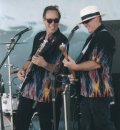OnedinGiraldo

Joined: Jul 17, 2016
Posts: 103
Sacramento




|

Posted on Mar 25 2020 06:50 AM
Our music project is a two piece and you have to be a lot more conscious with song writing. We play originals so we are aware of this every time we write something new. If we were going to play covers, I think not having a bassist or second guitar would be detrimental.
I agree, the "empty spaces" in a composition are just as important as trying to fill the spaces. I feel the challenge is trying to write balanced songs and this leads to sometimes breaking out of the traditional formula of a certain genre. If you are okay with that, you can have a lot of fun as a two-piece or a three-piece!
I am lucky that the drummer is a musician and understands that he does a lot of the filling in with colorful drum play. I mess with my tones as well as use different guitars and amps depending what song or where we are going to play. It just takes a little initial planning, but it can be done!
— The Me Gustas
https://themegustas.com
Last edited: Mar 25, 2020 06:52:54
|
stratdancer
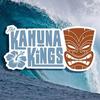
Joined: Dec 11, 2013
Posts: 2537
Akron, Ohio



|

Posted on Mar 25 2020 09:51 AM
I would like to expand on my original post. I think much of this discussion is based on what type of surf you are playing. I prefer to play high paced and high energy surf but anyone that is a fan of The Merman know that there is a whole other world that can be explored within this genre as a three piece. Dave Wronski described his use of echo in a way that makes that echo another bandmember that he plays off of. That space everyone is referring to can be filled with artifacts and echos. A three piece band can do incredible music. Look at Rush for guidance! 
— The Kahuna Kings
https://www.facebook.com/pages/The-Kahuna-Kings/459752090818447
https://thekahunakings.bandcamp.com/releases
|
DannySnyder
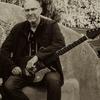
Joined: Mar 02, 2006
Posts: 11078
Berkeley, CA











|

Posted on Mar 25 2020 09:59 AM
There's a middle ground between playing lots of chords and single note melodies, it's called the 'double stop'. Learn all the positions, there's a scale for them just like for single notes. There's all kinds of hammer-ons and slides you can add as well. It will sound less sparse while still allowing for melodic flow.
I also echo what has been said before about bassists, they need to step up. They can't rest on the tonics and fifths, and they can't be merely a tuned bass drum. They need to combine rhythmic structure as well as harmony or counter melodic support.
I also notice that my favorite players in 3 pieces go back and forth from the top 3 strings to the bottom 3 strings, but rarely play across all 6. The movement between the 2 provides a lot of sonic complexity without getting too muddy
— Danny Snyder
"With great reverb comes great responsibility" - Uncle Leo
I am now playing trumpet with Prince Buster tribute band 'Balzac'
Playing keys and guitar with Combo Tezeta
Formerly a guitarist in The TomorrowMen and Meshugga Beach Party
Latest surf project - Now That's What I Call SURF
Last edited: Mar 25, 2020 10:01:17
|
synchro

Joined: Feb 02, 2008
Posts: 4566
Not One-Sawn, but Two-Sawn . . . AZ.





|

Posted on Mar 25 2020 11:16 AM
DannySnyder wrote:
There's a middle ground between playing lots of chords and single note melodies, it's called the 'double stop'. Learn all the positions, there's a scale for them just like for single notes. There's all kinds of hammer-ons and slides you can add as well. It will sound less sparse while still allowing for melodic flow.
I also echo what has been said before about bassists, they need to step up. They can't rest on the tonics and fifths, and they can't be merely a tuned bass drum. They need to combine rhythmic structure as well as harmony or counter melodic support.
I also notice that my favorite players in 3 pieces go back and forth from the top 3 strings to the bottom 3 strings, but rarely play across all 6. The movement between the 2 provides a lot of sonic complexity without getting too muddy
That’s an interesting thought, in your last paragraph. Among other things, I play some Joe Pass style solo pieces and that is very much what you do, likewise for Chet’s fingerstyle approach. In these cases, the thumb and the fingers of the right hand, function as the left and right hands do on the piano (respectively), allowing the lower range notes to sustain beneath the upper register notes.
When playing bass, I have occasionally employed a similar approach using the 1st and 3rd beats as the bass line and the 2nd and 4th as counterpoint.
— The artist formerly known as: Synchro
When Surf Guitar is outlawed only outlaws will play Surf Guitar.
|
synchro

Joined: Feb 02, 2008
Posts: 4566
Not One-Sawn, but Two-Sawn . . . AZ.





|

Posted on Mar 25 2020 11:29 AM
DannySnyder wrote:
This is only my opinion, but I believe a good gretsch guitar works best in a 3 piece. In fact I don't like it at all in 4 piece bands, but it's awesome (in the true sense of the word) when it has the sonic space to do it's thing.
When we went from a four piece to a three piece, I switched from a solid body (either a Jag or a Duo Jet with Dynasonics) to a hollow bodied Gretsch, preferably one with trestle bracing. Trestle bracing was developed as an anti-feedback method and it’s basically a quadruple sound post, tied directly to the parallel braces under the top. The result is much greater focus and excellent treble clarity.
For a Surf sound, I find that the Supertron pickup suits my tastes best. Supertrons have great articulation. I also found that a treble bleed helps.
— The artist formerly known as: Synchro
When Surf Guitar is outlawed only outlaws will play Surf Guitar.
|
simoncoil
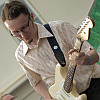
Joined: Sep 28, 2012
Posts: 928
Berlin, Germany





|

Posted on Mar 31 2020 01:35 PM
Okay, I needed to sort my terminology a little on this to make myself understandable, so here it goes: I have been playing in a trio for most of my surf music time, minus a short period where my old band also had a saxophone, but never a second guitar. In this time I came to the conclusion, that the most crucial point of making a trio work lies at the nexus of songwriting and arranging (which to me are two sides of the same coin in the trio context). When it came to writing new songs I started analysing tunes, of which I knew that they worked for a trio and stumbled upon something, which I dubbed "the Podolor model" because it first became obvious to me in songs by Richard Podolor (aka Richie Allen), most notably "The Quiet Surf" and "Casbah". But I'm pretty sure, that Podolor himself got it from Link Wray.
What is this model? If you look at a song as a sequence of parts (intro, verse, chorus, bridge etc.), every new part should have a different "texture" than the previous, by which I mean a combination of the melodical/harmonical content of a phrase with a certain sound from the instrument.
As an example, in "Quiet Surf" the intro consists of chords played as string harmonics, the combination of which is the first texture. The first verse has a melody as single notes on the upper strings interchanged with notes from the open e string and a little phrase on the lower strings at the end. The second verse repeats the melody but in a higher register and without the open e and with a few chords at the end, so it's the same melody with a different sound and thus not the same texture as before. The bridge has another single note melody but on the bass strings, yet another texture. (Note: So far we had three distinct textures (four if we count the chords at the end of the second verse) without even resorting to double picking or any pedal switching! The cleanish surf guitar sound really helps us in this case.)
So, even if the parts all differ in their chord changes, it really are the different textures that stress variety in a song, which definitely comes in handy when you just have one lead instrument. (I hope anybody can make sense of that all...)
I am not saying this is to be followed slavishly or that it's the only way to do it, but it has proven to be a very good starting point for me!
— Los Apollos - cinematic surf music trio (Berlin)
"Postcards from the Scrapyard" Vol. 1, 2 & 3 NOW available on various platforms!
"Chaos at the Lobster Lounge" available as LP and download on Surf Cookie Records!
Last edited: Mar 31, 2020 13:54:03
|
DannySnyder

Joined: Mar 02, 2006
Posts: 11078
Berkeley, CA











|

Posted on Mar 31 2020 03:38 PM
Excellent info Simon, thanks!
— Danny Snyder
"With great reverb comes great responsibility" - Uncle Leo
I am now playing trumpet with Prince Buster tribute band 'Balzac'
Playing keys and guitar with Combo Tezeta
Formerly a guitarist in The TomorrowMen and Meshugga Beach Party
Latest surf project - Now That's What I Call SURF
|
nedorama
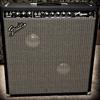
Joined: Oct 10, 2009
Posts: 229
South Bay, CA

|

Posted on Mar 31 2020 05:57 PM
Samurai wrote:
Sonic_Blue wrote:
Thoughts on using a looper? Any shame in it?
while playing live? Dont no, never tried one.
Playing with a looper is tough if you've never done it to nail the loop rhythms. Also, while it's great at home as a practice tool, if the rest of the band can't hear your loops clearly, the whole thing falls apart, kind of like playing to tape/sequences - you're locked in.
While I don't play surf, our band flexes from 3 to 7 band members. Echo can help fill the spots, but it's contrast - if bass is busy, guitar can be more sparse or single lines, but if bass is simple, you'll need to fill it up more.
Also try changing it up from song to song or even in the songs to let them breathe...
—
'65 Fender Tremolux, '74 Princeton; 77 Vibrolux Reverb; '81 Princeton Reverb
'65-66 Hilgen Basso Grande
Dr. Z MAZ 18 Jr. + 1x12 Cab
Various Telecasters and noise-making pedals
Farfisa Compact Duo
|
Samurai
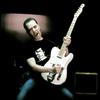
Joined: Mar 14, 2006
Posts: 2291
Kiev, Ukraine




|

Posted on Apr 01 2020 03:02 AM
simoncoil wrote:
Okay, I needed to sort my terminology a little on this to make myself understandable, so here it goes: I have been playing in a trio for most of my surf music time, minus a short period where my old band also had a saxophone, but never a second guitar. In this time I came to the conclusion, that the most crucial point of making a trio work lies at the nexus of songwriting and arranging (which to me are two sides of the same coin in the trio context). When it came to writing new songs I started analysing tunes, of which I knew that they worked for a trio and stumbled upon something, which I dubbed "the Podolor model" because it first became obvious to me in songs by Richard Podolor (aka Richie Allen), most notably "The Quiet Surf" and "Casbah". But I'm pretty sure, that Podolor himself got it from Link Wray.
What is this model? If you look at a song as a sequence of parts (intro, verse, chorus, bridge etc.), every new part should have a different "texture" than the previous, by which I mean a combination of the melodical/harmonical content of a phrase with a certain sound from the instrument.
As an example, in "Quiet Surf" the intro consists of chords played as string harmonics, the combination of which is the first texture. The first verse has a melody as single notes on the upper strings interchanged with notes from the open e string and a little phrase on the lower strings at the end. The second verse repeats the melody but in a higher register and without the open e and with a few chords at the end, so it's the same melody with a different sound and thus not the same texture as before. The bridge has another single note melody but on the bass strings, yet another texture. (Note: So far we had three distinct textures (four if we count the chords at the end of the second verse) without even resorting to double picking or any pedal switching! The cleanish surf guitar sound really helps us in this case.)
So, even if the parts all differ in their chord changes, it really are the different textures that stress variety in a song, which definitely comes in handy when you just have one lead instrument. (I hope anybody can make sense of that all...)
I am not saying this is to be followed slavishly or that it's the only way to do it, but it has proven to be a very good starting point for me!
Thanks, that’s really interesting and I really was inspired by Quiet Surf “textures change” in this tune. You may see there three clear changes at least.
— Waikiki Makaki surf-rock band from Ukraine
https://linktr.ee/waikikimakaki
Lost Diver
https://lostdiver.bandcamp.com
https://soundcloud.com/vitaly-yakushin
Last edited: Apr 01, 2020 03:02:34
|
ElBorko

Joined: Mar 20, 2020
Posts: 20
Oregon

|

Posted on Apr 02 2020 02:15 PM
For the last few years I have played guitar in a power trio. I have learned there's more to it than just filling space. If you have ever tried to play solo guitar versions of rock songs, you find yourself accenting beats two and four like a snare drum and adding bass notes. But when you play in the band, you don’t need to BE the band. Your rhythm section puts the power in ‘power trio’. Let them provide the rhythmic framework.
Less is more. I used to think I had to generate an endless stream of sound but it turns out I didn’t. The busy parts will stand out more if there are contrasting sparse areas. Give the bass and drums some space. Playing not-so-loud increases the relative strength of the bass and drums, which makes the band sound more ‘muscular’. Use chord-melody techniques. And hey! I almost forgot... REVERB!
|
synchro

Joined: Feb 02, 2008
Posts: 4566
Not One-Sawn, but Two-Sawn . . . AZ.





|

Posted on Apr 02 2020 06:24 PM
ElBorko wrote:
For the last few years I have played guitar in a power trio. I have learned there's more to it than just filling space. If you have ever tried to play solo guitar versions of rock songs, you find yourself accenting beats two and four like a snare drum and adding bass notes. But when you play in the band, you don’t need to BE the band. Your rhythm section puts the power in ‘power trio’. Let them provide the rhythmic framework.
Less is more. I used to think I had to generate an endless stream of sound but it turns out I didn’t. The busy parts will stand out more if there are contrasting sparse areas. Give the bass and drums some space. Playing not-so-loud increases the relative strength of the bass and drums, which makes the band sound more ‘muscular’. Use chord-melody techniques. And hey! I almost forgot... REVERB!
Great points. It's not just about creating a wall of sound.
— The artist formerly known as: Synchro
When Surf Guitar is outlawed only outlaws will play Surf Guitar.
Last edited: Apr 02, 2020 18:24:45
|
Tikidog

Joined: Jun 23, 2006
Posts: 186

|

Posted on Apr 04 2020 02:46 PM
hi samurai,
the razorblades have worked as a trio for more than 10 years
a few concepts are
chord melody ( check out barney kessel, joe pass, wes montgomery)
brian connelly is also doing great in a trio with atomic 7
bass notes in the empty spaces
open strings along with the melody on another string
in general i like to do overdubs on our studio recordings, but a lot of rhythm parts are not neccessary live and get drowned in the sound- unless you play in big venues with a great sound system/ mixer
i think it‘s cool if the live thing sounds a little different than the studio recording. did led zeppelin have a rhythm player ? no, same with hendrix and a lot of other rock guys...
|
Samurai

Joined: Mar 14, 2006
Posts: 2291
Kiev, Ukraine




|

Posted on Apr 05 2020 02:25 AM
Tikidog wrote:
hi samurai,
the razorblades have worked as a trio for more than 10 years
a few concepts are
chord melody ( check out barney kessel, joe pass, wes montgomery)
brian connelly is also doing great in a trio with atomic 7
bass notes in the empty spaces
open strings along with the melody on another string
in general i like to do overdubs on our studio recordings, but a lot of rhythm parts are not neccessary live and get drowned in the sound- unless you play in big venues with a great sound system/ mixer
i think it‘s cool if the live thing sounds a little different than the studio recording. did led zeppelin have a rhythm player ? no, same with hendrix and a lot of other rock guys...
Hi Martin! Thanks!
Your band is one other most inspiring for me during the last years, both in format and stylistics. Just watched yesterday your Surfer Joe performance searching for tips and technics)
— Waikiki Makaki surf-rock band from Ukraine
https://linktr.ee/waikikimakaki
Lost Diver
https://lostdiver.bandcamp.com
https://soundcloud.com/vitaly-yakushin
|
Tikidog

Joined: Jun 23, 2006
Posts: 186

|

Posted on Apr 05 2020 07:00 AM
hi samurai,
then you should definitely get the book:)
i explain several of my concepts and you get quite a few razorblades songs, fully transcribed. i‘m also doing a lot of skype lessons at the moment, just get in touch via
getcutby@ therazorblades.de
|
Samurai

Joined: Mar 14, 2006
Posts: 2291
Kiev, Ukraine




|

Posted on Apr 05 2020 07:15 AM
Tikidog wrote:
hi samurai,
then you should definitely get the book:)
i explain several of my concepts and you get quite a few razorblades songs, fully transcribed. i‘m also doing a lot of skype lessons at the moment, just get in touch via
getcutby@ therazorblades.de
I see its a pre-order? Ready to buy any time. Hope it will be delivered ok.
Concerning Skype lessons I will get in touch with by mail or facebook!
— Waikiki Makaki surf-rock band from Ukraine
https://linktr.ee/waikikimakaki
Lost Diver
https://lostdiver.bandcamp.com
https://soundcloud.com/vitaly-yakushin
|
LHR

Joined: Aug 23, 2006
Posts: 2123
The jungle









|

Posted on Apr 11 2020 05:44 AM
I play in a quartet and we had a weird gig where one of us could not make it. It was odd. Literally. Did not enjoy.
There is a well-worn trope about the standard rock "power trio" and how it is so difficult to pull off. Well, hell, at least then there are two melodic voices: the singing and the guitar. With instro, you would be faced with but one melody line in a trio context. Not awesome, TBQFH. You would have to be a damned good player, play fairly stripped-down arrangements, or just say f***-all and use a lot of chord melody to keep it insteresting. Or all of the above.
Or, you know, get a proper rhythm section. Not wishing to sound flippant, but that is my advice: don't. Playing without a vocalist already puts your band at an immediate disadvantage in the real world of the gig. Why make your life harder than it needs to be? Heck, I wish we had an additional rhythm guitarist or keyboardist. It would be great.
Hats off to you surf guys playing in a trio. I don't get it.
— SSIV
Last edited: Apr 11, 2020 05:56:31
|
BillAqua
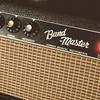
Joined: Feb 27, 2006
Posts: 1054
Chicago IL.

|

Posted on Apr 11 2020 11:10 AM
My most successful surf band was a three piece. I think all the others failed because of a second guitar. We even tried 2nd guitarists in the Aquanauts and that failed.
In the Reluctant Aquanauts I probably had the greatest surf drummer and bassist. Neither over played but filled in all the spaces.
Also a big part of a trio working out is writing music that fits your band
We tried Ventures/Los Straitjackets type instros at first and that failed, then I got into Eddie Bertrand and Randy Holden. Somehow that stuff worked with the trio best. What made that work best with the trio? I think the Fender Bandmaster with a outboard reverb unit. That set up became the 4th member.
We then tried to write songs with that similar aggressive approach and we made them work for the trio.
That all said I overdubbed second guitar parts on all our recordings. But I think we sounded better live.
— "as he stepped into the stealthy night air... little did he know the fire escape was not there"
https://www.facebook.com/reluctantaquanauts/
https://www.facebook.com/TheDragstripVipers/
Last edited: Apr 11, 2020 11:15:29
|
LHR

Joined: Aug 23, 2006
Posts: 2123
The jungle









|

Posted on Apr 11 2020 02:51 PM
Bill:
Sounds good!
You three were pretty busy. Your bassist is playing counterpoint like the other posters have pointed out. I could not keep this up for an hour. Obviously, you made it work.
The only advantage to a trio I can think of is that you don't have someone - a rhythm guitarist - stepping on your melody. Then again, it sounds like your bassist was playing in your register frequently, so you would have had to keep that under control, I guess.
— SSIV
|
synchro

Joined: Feb 02, 2008
Posts: 4566
Not One-Sawn, but Two-Sawn . . . AZ.





|

Posted on Apr 11 2020 04:58 PM
BillAqua wrote:
My most successful surf band was a three piece. I think all the others failed because of a second guitar. We even tried 2nd guitarists in the Aquanauts and that failed.
In the Reluctant Aquanauts I probably had the greatest surf drummer and bassist. Neither over played but filled in all the spaces.
Also a big part of a trio working out is writing music that fits your band
We tried Ventures/Los Straitjackets type instros at first and that failed, then I got into Eddie Bertrand and Randy Holden. Somehow that stuff worked with the trio best. What made that work best with the trio? I think the Fender Bandmaster with a outboard reverb unit. That set up became the 4th member.
We then tried to write songs with that similar aggressive approach and we made them work for the trio.
That all said I overdubbed second guitar parts on all our recordings. But I think we sounded better live.
I like that sound, and agree, the live sound really gets it. I prefer the sound of a trio, the openness and airiness of it all. I like to hear the lead guitar battling it out with the backing of just a bass and drums. I love to hear a bass and guitar each forge their own path through a song, complimenting one another.
A good rhythm player can add a lot, and I’ve heard some great ones in my day, but there are many examples of rhythm players that weren’t able to make a contribution without getting in the way.
Once you get into improvisation, it becomes even more of a problem. You are bound by the harmonies the rhythm instrument chooses, be it guitar or piano. If the bass is playing the basic changes, the upper structure of the chords is open to interpretation and an improvised lead line can move freely between reharmonizations of the changes.
I just love trios.
— The artist formerly known as: Synchro
When Surf Guitar is outlawed only outlaws will play Surf Guitar.
|
BillAqua

Joined: Feb 27, 2006
Posts: 1054
Chicago IL.

|

Posted on Apr 11 2020 05:26 PM
LHR wrote:
Bill:
Sounds good!
You three were pretty busy. Your bassist is playing counterpoint like the other posters have pointed out. I could not keep this up for an hour. Obviously, you made it work.
The only advantage to a trio I can think of is that you don't have someone - a rhythm guitarist - stepping on your melody. Then again, it sounds like your bassist was playing in your register frequently, so you would have had to keep that under control, I guess.
Thank you! I was also 25 years old at the time of that recording. Not sure I could play that fast any more!
— "as he stepped into the stealthy night air... little did he know the fire escape was not there"
https://www.facebook.com/reluctantaquanauts/
https://www.facebook.com/TheDragstripVipers/
|

